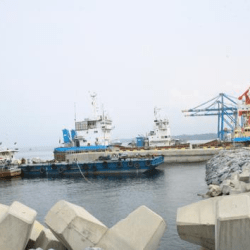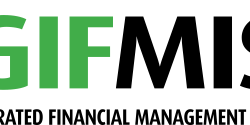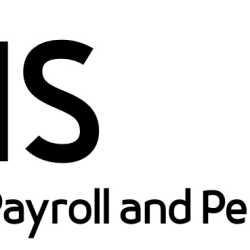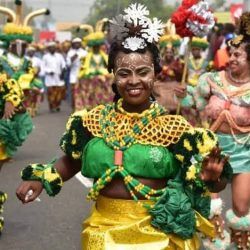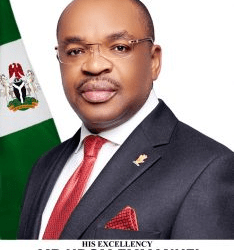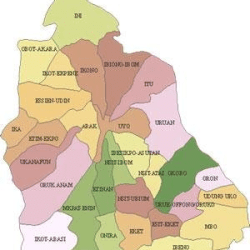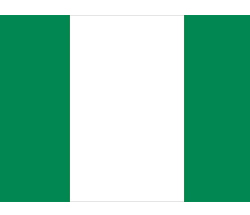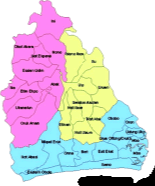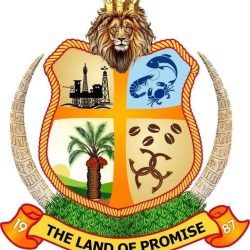The Ibaka Integrated Deep Seaport project is one mega project whose economic importance to Akwa Ibom State, Nigeria and the entire Gulf of Guinea has been well acknowledged.

This has informed keen interest of the Federal Government of Nigeria in the project, which on completion, is expected to redefine the direction of economic activities in the sub-region. To underscore the importance of the Ibaka Intergraded Deep Seaport to the economy of the region the Federal government of Nigeria not long along ago gave approval and set up a technical implementation committee to ensure the actualization of this dream project and the required licenses have been issued for its takeoff.
The Ibaka Integrated Deep Seaport consists of key components are also constitute major investment areas for potential local and international investors.
The key components of the IIDS, are:
• Petrochemical Industries (eg, fertilizer plant)
• Refineries
• Five Star Hotel
• Dockyard and watercraft Repair Facilities
• Cargo Handling and Associated activities
The Ibaka Deep Sea Port is designed to be one of the components of proposed Ibom Industrial City. The Industrial City business resort is expected to house refineries, petrochemical plant, dockyard, housing estates and oil and gas support services.
3D Model of the proposed Ibom Industrial City
The Ibaka seaport has the following unique features:
• Has a natural draught of 11 meters
• requires little dredging to accommodate large ocean going vessels
• located in the oil rich region and would serve the oil companies and oil service companies located within the region
• Easy access to the oil rich Gulf of Guinea
• Proximity and centrality to Deep offshore operations & West African region, JDZ, Sao Tome, Equatorial Guinea, Angola, Gabon, Tinapa.
• Could stimulate industrial, mercantile and tourism activities
• Development of infrastructure to support oil & gas exploration, shipping, industries and international trade within a free trade zone framework
• The synergy so generated would be used as a vehicle for rapid development
• Employment of a strategy that balances rapid industrialisation/ economic growth with environment protection.
Reference: akwaibomstate.gov.ng/ibaka-integrated-deep-seaport/
Akwa Ibom
Akwa Ibom is a state in the South-South geopolitical zone of Nigeria, bordered by Cross River, Rivers, Abia, Ebonyi states and the Atlantic Ocean.


It was created in 1987 from Cross River State and has 31 local government areas.
It has a population of about 5.5 million people as of 2016 and is the 15th most populous state in Nigeria.
The state is rich in natural resources such as oil, gas, clay, limestone, salt, and coal.
Akwa Ibom is also known for its cultural diversity and language similarities. There are over 20 languages spoken in Akwa Ibom, but the major ones are Ibibio, Anaang, Efik, and Igbo.
Akwa Ibom takes its name from the Qua Iboe River which bisects Akwa Ibom before flowing into the Bight of Bonny.
Akwa Ibom has a tropical climate with two seasons: rainy and dry. The rainy season lasts from April to October and the dry season from November to March.
It is home to various tourist attractions such as the Ibom Plaza, the Ibeno Beach, the Stubb’s Creek Forest Reserve, the National Museum of Colonial History, and the Meridien Akwa Ibom golf course.
Akwa Ibom has a vibrant culture and celebrates various festivals such as the New Yam Festival, the Ekpe Masquerade Festival, the Leboku Festival, and the Christmas Carols Festival.
Located in the South Eastern part of the country, Akwa Ibom is a key member of Nigeria’s South South Zone, rich in crude oil, natural gas and a diversity of agricultural produce.



Over 5000 expatriates working for various organisations like Exxon Mobil, Shell, Chevron, Elf, the Aluminum Smelter Company, ALSCON, Forrestal, Reynold International and the University of Uyo have found a home here.


Capital City: Uyo
Other Major Cities: Eket, Ikot Ekpene, Abak, Ikot Abasi and Oron.
Ethnic Groups: Multi-ethnic: Ibibio, Anang, Oron, Eket, Ibeno, Mbo
Location: Latitude 4o 32’ and 5o53’ North and Longitude 7o25’ and 8o25 East.
Area: 8,412 square kilometers


Climate: Tropical climate marked by two distinct seasons; the dry season (November – March) and the wet season (April – October). The wet season is usually interrupted by a short dry spell in August.
Mean annual rainfall is 2,200mm in the north of the state and 3,500mm in the south of the state.
Sunshine is between 1,400 to 1,500 hours per year. Average temperature range from 23oC to 31oC.
Vegetation: Three easily distinguishable vegetation; the saline water swamp forest, the fresh water swamp forest and the rainforest.
Mineral Resources: Crude oil, natural gas, limestone, gold, salt, coal, silver nitrate, glass sand, kaolin.
The major industrial crop is the oil palm tree. The Akwa Ibom has the densest groves of oil palm in Nigeria. The Akwa Palm Industries PLC was set up in 1991 to harness the full potential of this crop.

The production of crude palm oil will allow for downstream industries which can refine the oil into vegetable oil, soaps, margarine, glycerin, candles, detergents and numerous other products. The kernel oil is used for the manufacture of high quality toilet soap. Bye product from the oil palm industries are used for the production of livestock feeds.
Arable Crops
Cassava
Yam
Cocoyam
Maize
Rice
Cowpea
Melon
Horticultural or Fruit Crops
Plantain
Banana
Pineapple
Pawpaw
Mango
African peas
Vegetable Crops
Leafy vegetable
Okro
Pepper
Tomatoes
Cash Crops
Oil palm
Coconut
Rubber
Cocoa
Raffia palm
Gmelina
Kola
Although Akwa Ibom is mineral-rich, agriculture is the bedrock of its economy. It employs about 70 percent of the state’s workforce. Most are engaged in subsistent farming. The industrial sector is small and is dominated by government owned companies. The private sector is active in the service areas, although a few industries are privately owned.
At inception, the state inherited a number of companies from Cross River State. These are:
- Sunshine Batteries, Essien Udim
- Peacock Paint, Etinam
- Quality Ceramic Industries, Itu
- Qua Steal Products Limited, Eket
- Asbestonit Industries, Oron
- Plasto – Crown Industries, Uyo
- International Biscuits Limited, Ikot Ekpene
- Champion Breweries, Uyo
- Pamil Industries, Abak

Most of the companies are ailing, becoming a drain on government. As part of the economic policies, these companies are to be revived and privatized. Government is diverting its interest in them in line with overall philosophy to focus on creating an enabling environment for private sector initiatives to flourish.
LGAs in Akwa Ibom State
The LGAs (Local Government Areas) in Akwa Ibom State are:
- Abak
- Eastern Obolo
- Eket
- Esit Eket
- Essien Udim
- Etim Ekpo
- Etinan
- Ibeno
- Ibesikpo Asutan
- Ibiono Ibom
- Ika
- Ikono
- Ikot Abasi
- Ikot Ekpene
- Ini
- Itu
- Mbo
- Mkpat Enin
- Nsit Atai
- Nsit Ibom
- Nsit Ubium
- Obot Akara
- Okobo
- Onna
- Oron
- Oruk Anam
- Udung Uko
- Ukanafun
- Uruan
- Urue-Offong/Oruko
- Uyo

